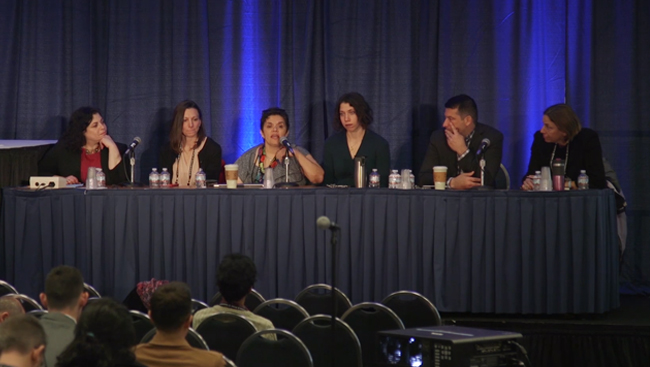News You Can Use in Writing Grant Applications: Updates From NIH
- Featured in:
- SfN Annual Meeting Recordings
Jan 30, 2018
Understanding current NIH policy and priorities is advantageous to grant applicants. Much has changed at NIH, including an emphasis on rigor and transparency influencing scores in review, new policies on clinical trial, evolving scientific priorities at NIH institutes; and new funding opportunities. Hear from senior representatives at the Center for Scientific Review, National Institute of Neurological Disorders and Stroke, National Institute on Aging, National Institute on Drug Abuse, and National Institute of Mental Health about the implications of these changes for neuroscience grant applications.
Speakers

Bruce Reed, PhD
Bruce Reed is the director of the Division of Neuroscience, Development, and Aging at NIH Center for Scientific Review. He previously was a professor of neurology and associate director of the National Institute on Aging-funded Alzheimer’s Disease Center at University of California, Davis, where he wrote and assisted with numerous grant applications, ranging from R01s, to training and fellowship applications, to program projects, center grants and conference proposals. Reed also extensively reviewed for NIH, serving as chair of two study sections, clinical neuroscience and neurodegeneration, and adult psychopathology and disorders of aging. He earned his PhD from the State University of New York at Stony Brook School of Medicine.

Jean Noronha, PhD
Jean Noronha serves as the director of the Division of Extramural Activities at the National Institute of Mental Health (NIMH), overseeing the management of the National Advisory Mental Health Council, NIMH-led peer review, the grants management branch, and extramural grants policy. She also serves as a research integrity officer for NIMH. She previously served as deputy director in the Division and Referral Officer for NIMH, and she began her NIH extramural career as a scientific review officer. Noronha received her PhD in biochemistry and biophysics from Loyola University of Chicago, where she examined brain development in an animal model of fetal alcohol exposure. She conducted research in the intramural program of NIH in the laboratory of neuroscience at the National Institute on Aging focused on developing radiolabeled lipid probes to visualize membrane turnover in the brain.

Susan Weiss, PhD
Susan Weiss is the director of the Division of Extramural Research at the National Institute on Drug Abuse (NIDA), overseeing NIDA’s extramural programs, research training activities, operations planning, and trans-NIH initiatives, such as the Adolescent Brain Cognitive Development study. She previously served as the chief of the Science Policy Branch and acting director of NIDA's Office of Science Policy and Communications. She was also the senior director of research at the National Mental Health Association (now Mental Health America), and she previously directed a translational research program that studied the evolving nature of psychiatric and neurologic illnesses in the Biological Psychiatry Branch of the National Institute of Mental Health. Weiss has received multiple awards, including NIH Plain Language Awards, NIH and NIDA Director’s Awards, and an Emmy Award for her contributions to the HBO Addiction Project. She graduated from the State University of New York at Stony Brook and received her PhD in psychology from the University of Maryland.

Robin A. Barr, PhD
Robin Barr is the director of the division of extramural activities at the National Institute on Aging (NIA). He previously served as deputy head of the division of extramural activities where he contributed to policy development and coordination at the NIA. He also served as a program administrator in the division of behavioral and social research at NIA where he helped establish the NIA Roybal Centers of Research on Applied Gerontology and develop the NIA’s initiative examining cognitive interventions to improve functioning older adults. Barr received his undergraduate and PhD in psychology from the University of Oxford and completed his postdoctoral training at the University of Pennsylvania.

Robert Finkelstein, PhD
Robert Finkelstein is the director of extramural activities at the National Institute of Neurological Disorders and Stroke (NINDS). In this capacity, he oversees the awarding of NINDS grants and the development of a broad range of NINDS initiatives and policies. He previously was a professor in the department of neuroscience at the University of Pennsylvania. He earned his PhD from the Massachusetts Institute of Technology and completed his postdoctoral training at Harvard Medical School.
More in Professional Development
4 of 5 articles left
Login
or
Become a Member
to unlock content








